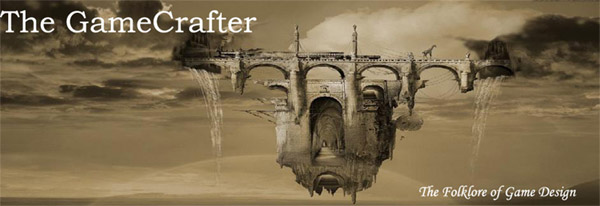A few days after my last post, a long time associate emailed me with some comments and a thought provoking query. He asked "Why is there no mention of Mobile Games in your analysis?".
I thought it worthwhile to add my response here as it is very relevant.
I am very glad you enjoyed and found value in my ramblings. I have been lax in responding to you as I wanted to think about and do some research into, your query regarding mobile gaming.
In my research I found that I had to adjust some of my thinking regarding psychological needs in gaming to account for the mobile casual game scenarios. It was an interesting discovery.
First, the US I believe, lags behind Europe a year or two in regards to the implementation of communication technology. The US does not have a central communication or nationalized communication company. The primary players are Verizon/ALLTELL, AT&T, and Sprint/Nextel. A year ago I was working for a software company positioning their mobile workforce automation software and selling them through the various wireless carriers. There are differences between the various carriers in terms of their market strategy, market focus and what technology is available to 3rd party vendors. For example, Verizon which is the leader in the consumer market, does not allow third party vendors to access the GPS chips in the phones on their network.
I see mobile gaming being developed in three primary forms.
#1: Casual Amusement games: As a casual gaming platform with offerings that provide amusement to the consumer. This is short term Nagara type offering that are designed to provide humor as well as some minor short lived strategy game that takes no more than a few minutes to complete. Competition is against a high score or against other folks score in what I call "Serial competition". There is a "game" and the competition is chalked up in a series of games which provide performance metrics that are compared against the players past performance metrics or against other players performance metrics. The "Serial Competition" becomes the "hook" for this type of offering.
#2: Information Extension of Persistent Games: Imagine playing a MMO where as a guild member or leader you can get information updates and a "light version" of the MMO client where it is possible to make administrative decisions. This would be a secondary client to a game that is played via console, web or PC.
#3 Proximity games. We have not seen this type of offering to my limited knowledge, but this very unique design aspect could trigger a social explosion if it is done correctly. In this concept we blend the proximity of players to each other to create unique interactions that either are scored and stored in a serial global competition and/or give unique tokens that have ramifications to a persistent game world that is played on a global basis. The ramifications of this concept is enormous in terms of the amount of players, psychological hooks, and revenue stream.
The overall conclusion is that Mobile Games fit well into the future and will be with us a very long time. It has untapped potential, that is not being addressed at this time by what I can determine.
The basis for this analysis is that all technology is rushing towards the sovereign individual, which is that state where no matter where a person is, they can work and play using technology. National Borders dissolve and the concept of "web services" that apply to today's enterprise applications will apply to individual people, a "loose coupling" of a persons expertise and services to a larger project.
Best regards,
Jim
Thursday, April 30, 2009
Subscribe to:
Post Comments (Atom)





No comments:
Post a Comment